Steal These Lines
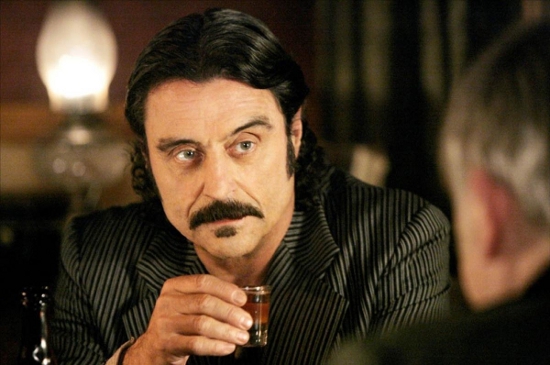 No television show loved language more than HBO’s Deadwood, but that statement comes with a caveat: It was not particularly quotable.
No television show loved language more than HBO’s Deadwood, but that statement comes with a caveat: It was not particularly quotable.
 No television show loved language more than HBO’s Deadwood, but that statement comes with a caveat: It was not particularly quotable.
No television show loved language more than HBO’s Deadwood, but that statement comes with a caveat: It was not particularly quotable.
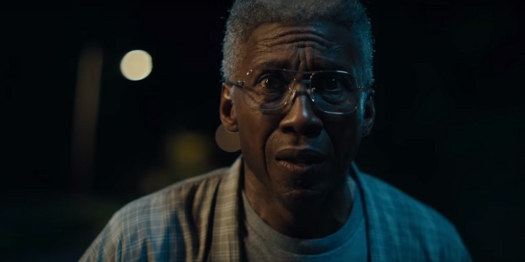 Sometimes the success or failure of a movie, book, or television show hinges on a short passage. If that small part works, so does the whole; if the crucial bit comes up short, the entire enterprise falls apart. For me with the third season of creator/writer Nic Pizzolatto’s HBO series True Detective, the moment comes late in the finale when former cop Wayne Hays drives up to the house of a person he strongly suspects is Julie Purcell, who disappeared with her brother Will 35 years ago and has eluded him ever since.
Sometimes the success or failure of a movie, book, or television show hinges on a short passage. If that small part works, so does the whole; if the crucial bit comes up short, the entire enterprise falls apart. For me with the third season of creator/writer Nic Pizzolatto’s HBO series True Detective, the moment comes late in the finale when former cop Wayne Hays drives up to the house of a person he strongly suspects is Julie Purcell, who disappeared with her brother Will 35 years ago and has eluded him ever since.
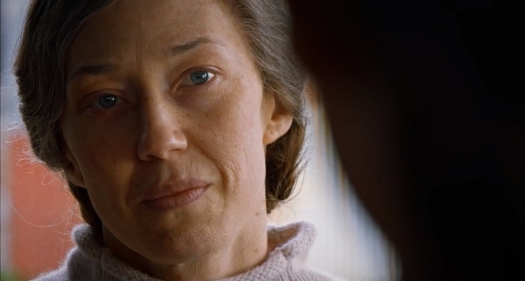 The question of what actually happened with Nora hangs over the finale of The Leftovers, but it is finally unknowable in any conclusive sense. Yet as much as the finale’s approach invites speculation, questions, and theories, it also tells us how to process it.
The question of what actually happened with Nora hangs over the finale of The Leftovers, but it is finally unknowable in any conclusive sense. Yet as much as the finale’s approach invites speculation, questions, and theories, it also tells us how to process it.
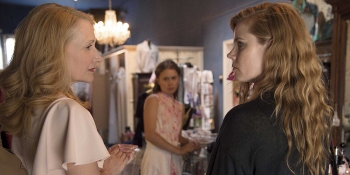 Adapted from Gillian Flynn’s debut novel, HBO’s Sharp Objects is a whole bunch of greatness that, finally, amounts to not much of anything.
Adapted from Gillian Flynn’s debut novel, HBO’s Sharp Objects is a whole bunch of greatness that, finally, amounts to not much of anything.
‘Treme’ S1 starts slowly, has some tedious characters, and is too proudly authentic, but Simon’s team remains expert at resonant microcosms.
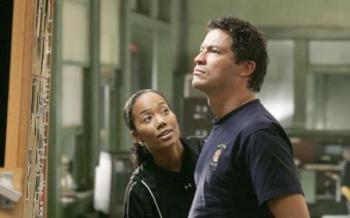 The 58th – and second-to-last – episode of The Wire, David Simon’s sociological HBO drama about Baltimore, is titled “Clarifications,” and one scene succinctly serves that purpose. When McNulty takes his faked serial killer of homeless men to FBI profilers, they nail the detective’s character in a few sentences based on his “evidence”: The murderer, they say, is a high-functioning alcoholic who works in a bureaucracy and has a problem with authority. McNulty – in Dominic West’s performance, always lacking self-awareness – can barely cloak his petrified amusement. He seems to be thinking: Am I that easy?
The 58th – and second-to-last – episode of The Wire, David Simon’s sociological HBO drama about Baltimore, is titled “Clarifications,” and one scene succinctly serves that purpose. When McNulty takes his faked serial killer of homeless men to FBI profilers, they nail the detective’s character in a few sentences based on his “evidence”: The murderer, they say, is a high-functioning alcoholic who works in a bureaucracy and has a problem with authority. McNulty – in Dominic West’s performance, always lacking self-awareness – can barely cloak his petrified amusement. He seems to be thinking: Am I that easy?